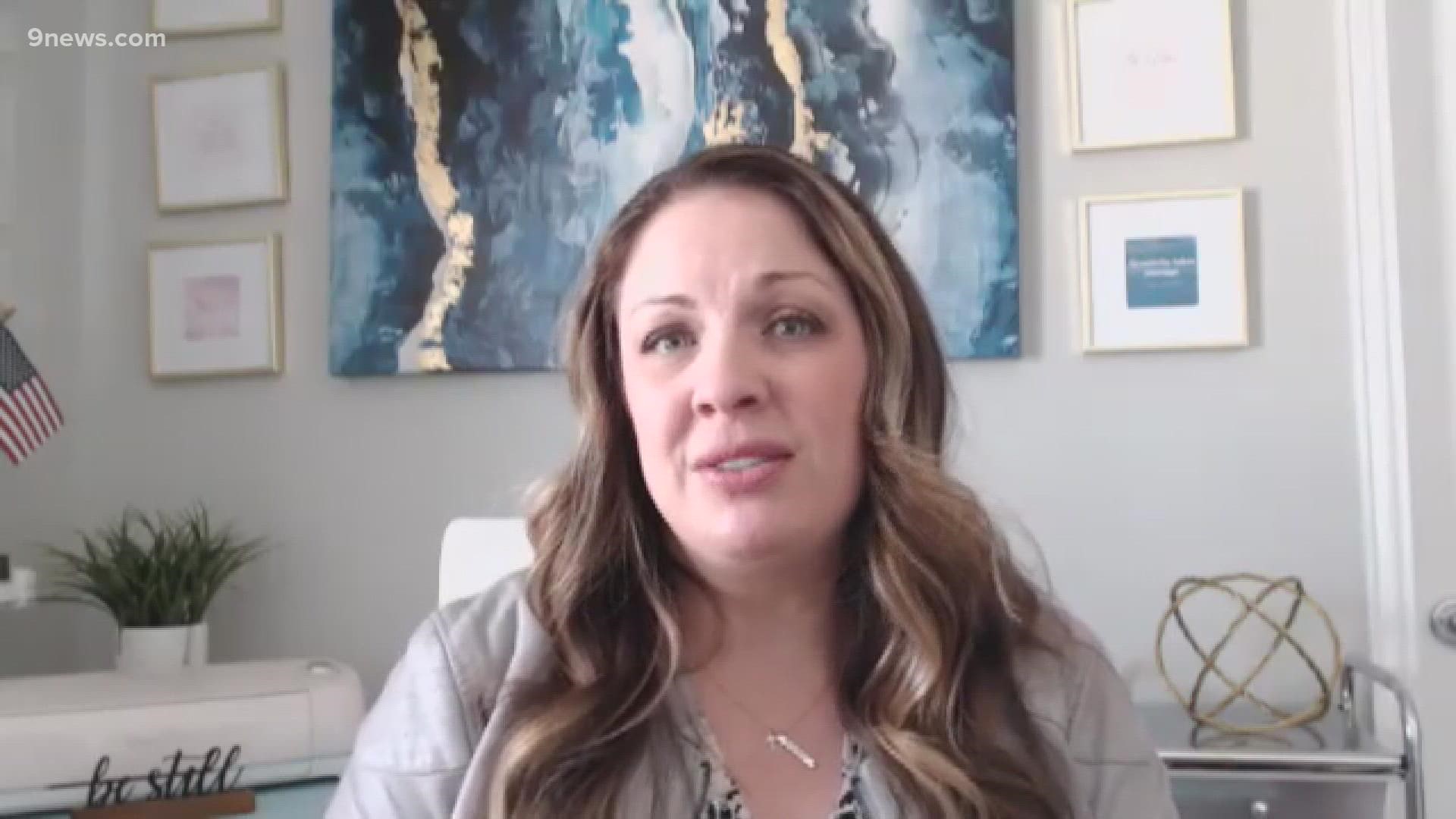DENVER — A Denver-based web and graphic designer will take her case to the Supreme Court after five years of ongoing court proceedings.
Owner of 303 Creative, Lorie Smith, is based out of Denver. She creates web sites and other graphic work. Smith began legal proceedings about five years ago over what she believes is a violation of her religious beliefs.
Because her form of art is a form of expression, she is asking that she has the choice to turn away making art, graphics or designs that convey a message that she doesn't agree with. She also wants to include a notice on her website to tell potential clients about this. In part, her website already includes a similar notice.
Her website reads on her "About" page, "As a Christian who believes that God gave me the creative gifts that are expressed through this business, I have always strived to honor Him in how I operate it. My primary objective is to design and create expressive content — script, graphics, websites and other creative content — to convey the most compelling and effective message I can to promote my client’s purposes, goals, services, products, events, causes or values. Because of my faith, however, I am selective about the messages that I create or promote — while I will serve anyone, I am always careful to avoid communicating ideas or messages, or promoting events, products, services or organizations, that are inconsistent with my religious beliefs."
Last week, the Supreme Court announced that it would hear her case, 303 Creative v. Elenis. The primary issue her lawyers will argue is that this case is revolves specifically on freedom of speech.
RELATED: Judge: Masterpiece Cakeshop baker violated discrimination law by refusing gender transition cake
The case differs from the Masterpiece Cakeshop v. Colorado Civil Rights Commission because that case focused on the freedom to exercise religion. While lawyers did also incorporate arguments that related to freedom of speech, the Supreme Court justices did not make a clear ruling in regards to that specific element. It left an option open for Smith to bring her case to the court.
"It's deeply personal for me to determine which messages I really want to invest my time and talents in promoting," said Smith. "It's imperative for me that the things that I create with my custom graphics and websites that they're honoring and glorifying to God, and while I'm happy to serve all people and I have served all people, including those who identify as LGBT, there are certain messages I'm unable to promote."
Smith is being represented by the Alliance Defending Freedom (ADF), based out of Arizona. Her lawyer said he is optimistic that the ruling will be in their favor.
"We're confident that the court that the Supreme Court will recognize that these websites are Lori speech, and for that reason she deserves First Amendment protection for them," said Jake Warner, legal counsel with ADF.
The U.S. Court of Appeals for the 10th Circuit Court disagreed in 2021, saying this is a discriminatory action. Lawyers on the opposing side say the court of appeals was right to uphold their decision.
"Everyone in Colorado needs to be treated equally when they go into a business to go shopping, whether the business is an online business or brick and mortar. It's about the commercial marketplace being known to everyone. We should not have to still be fighting about this but apparently we do. The point is simple," said Jenny Pizer, senior legal counsel with Lambda Legal.
Pizer filed briefings while the case was going through the appeal process and will file additional briefings at the Supreme Court level.
"It is both frustrating and important from our perspective that there are organizations and people who are still so determined to have permission to discriminate against members of our community when they're operating a business," said Pizer.
The case is expected to be heard by the Supreme Court in the fall, as early as October.
SUGGESTED VIDEOS: Politics

